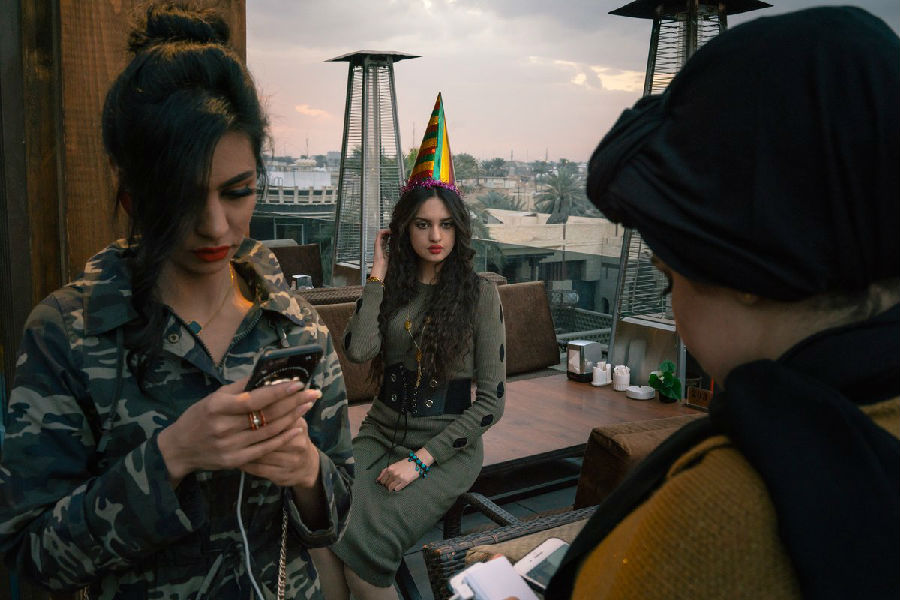In 2014, its fighters seized swaths of territory, including Iraq’s second city, Mosul.
2014年,該集團的士兵占領了包括伊拉克第二大城市摩蘇爾在內的大片領土。
With most U.S. combat troops having left the country in 2011, the Iraqi military was badly outgunned, and many fled the jihadists’ path.
由于大多數美國作戰部隊已于2011年撤離該國,伊拉克軍隊的裝備嚴重落后于對手,許多人都選擇了逃離圣戰分子的道路。
Al-Abadi was appointed Prime Minister that year, after at least four Iraqi army divisions collapsed in the face of ISIS.
阿巴迪也是在那年被任命為伊拉克總理的,而在此之前,已經有至少四支伊拉克軍隊被ISIS擊潰。
Many Iraqis blamed al-Abadi’s predecessor Nouri al-Maliki, a hard-line Shi‘ite politician, for leaving alienated Sunnis amenable to ISIS propaganda.
許多伊拉克人都譴責阿巴迪前任努里·馬利基——一位強硬的什葉派政治家,聲稱是他導致少數派的遜尼派人士接受ISIS宣傳的。
Dislodging ISIS took over three years.
驅逐ISIS花了伊拉克三年的時間。
The U.S. military rushed forces to Iraq to help turn back the tide.
當初,美軍匆匆出兵伊拉克,企圖能夠扭轉局面。
It was a grueling battle; retaking Mosul involved what U.S. commanders called the deadliest urban combat since World War II.
這是一場艱苦的戰斗;為了收復摩蘇爾,伊拉克上演了一場別美國指揮官們稱為二戰以來最為致命的城市作戰的戰爭。
Finally, in December, al-Abadi declared victory, congratulating the country for crushing an "enemy that wanted to kill our civilization."
終于,12月,阿巴迪宣布了勝利的消息,祝賀該國粉碎了“那些想要消滅我們的文明的敵人”。
Little more than a month later, he shudders at how close ISIS came to seizing Baghdad itself.
一個多月后,想到ISIS如何差點攻陷首都巴格達,他還是會不寒而栗。
"Do not forget, they tried to establish a state in the region,” he says, sitting in his Baghdad office with a large map of Iraq on the wall.
“別忘了,他們的野心是在這個地區建立一個國家,”坐在他位于巴格達的辦公室里的阿巴迪說到,他身后的墻上掛著一幅很大的伊拉克地圖。
"And they were not a long distance away from achieving their dream."
“而且,他們離實現他們的夢想就差一步了。”

Al-Abadi now has a much more complex mission: governing his fractured country, while ensuring that ISIS cannot regroup.
阿巴迪現在還有一個更為復雜的任務:他要管理他那已經支離破碎的國家,還要確保ISIS不會重新集結起來。
He must manage the competing interests of Shi‘ites, Sunnis and Kurds,
他必須處理好什葉派、遜尼派和庫爾德人之間相互競爭的利益,
and the splits within those groups, as well as the interests of the anti-ISIS coalition, including the U.S. , Turkey, Saudi Arabia, Iran and Jordan.
同時處理好這些團體內部的分歧,還要兼顧包括美國,土耳其,沙特阿拉伯,伊朗和約旦在內的反ISIS同盟的利益。
"Abadi is trying to juggle many different allies,” says Renad Mansour, an Iraq research fellow at the U.K. think tank Chatham House.
“阿巴迪正試圖兼顧多方盟友的利益,”英國智庫查塔姆大廈的伊拉克研究員雷納德·曼蘇爾說到。
"He is up against a difficult task."
“他的任務非常的艱巨。”
After nearly four years in office, al-Abadi claims he has learned some hard lessons from the disaster of ISIS.
任職近四年后,阿巴迪聲稱,他已經從ISIS的災難中吸取到了一些沉痛的教訓。
He believes the key to halting another existential threat is to instill in all Iraqis a sense of nationhood,
他認為,要想制止另一個存在主義的威脅,關鍵就在于向所有伊拉克人灌輸一種國家意識,
connecting them to the central government at least as much as to their tribal and religious leaders.
將他們與中央政府聯系起來,至少要讓他們與政府的關系如同他們與自己所在的部落和宗教領袖的關系一樣緊密。
"People must feel part of this country and like they are citizens of this country,” he says.
“人們必須要能感受到他們是這個國家的一部分,是這個國家的公民,”他說。
"At the end of the day, we must deliver to the people."
“說到底,我們必須為人民服務。”
To do that, he will need to tackle perhaps the toughest problem of all: rampant corruption.
要做到這一點,他就要解決最棘手的問題:伊拉克猖獗的腐敗問題。
The antigraft organization Transparency International described Iraq in 2015 as suffering "extensive, pervasive corruption across all levels of government and sectors."
2015年,反貪組織“透明國際組織”將伊拉克描述為“各級政府和部門都存在廣泛而普遍的腐敗問題”。
When al-Abadi took office in 2014, he discovered 50,000 fictitious "ghost soldiers” on the military payroll,
阿巴迪2014年上任時,他在軍人工資單上發現了5萬名編造的“影子士兵”,
whose commanders were together reaping about $380 million a year.
他們的指揮官每年都能籍此拿到將近3.8億美元的收入。
In response, he fired several generals and top officials.
作為回應,阿巴迪開除了幾名將軍和高級官員。
譯文由可可原創,僅供學習交流使用,未經許可請勿轉載。


